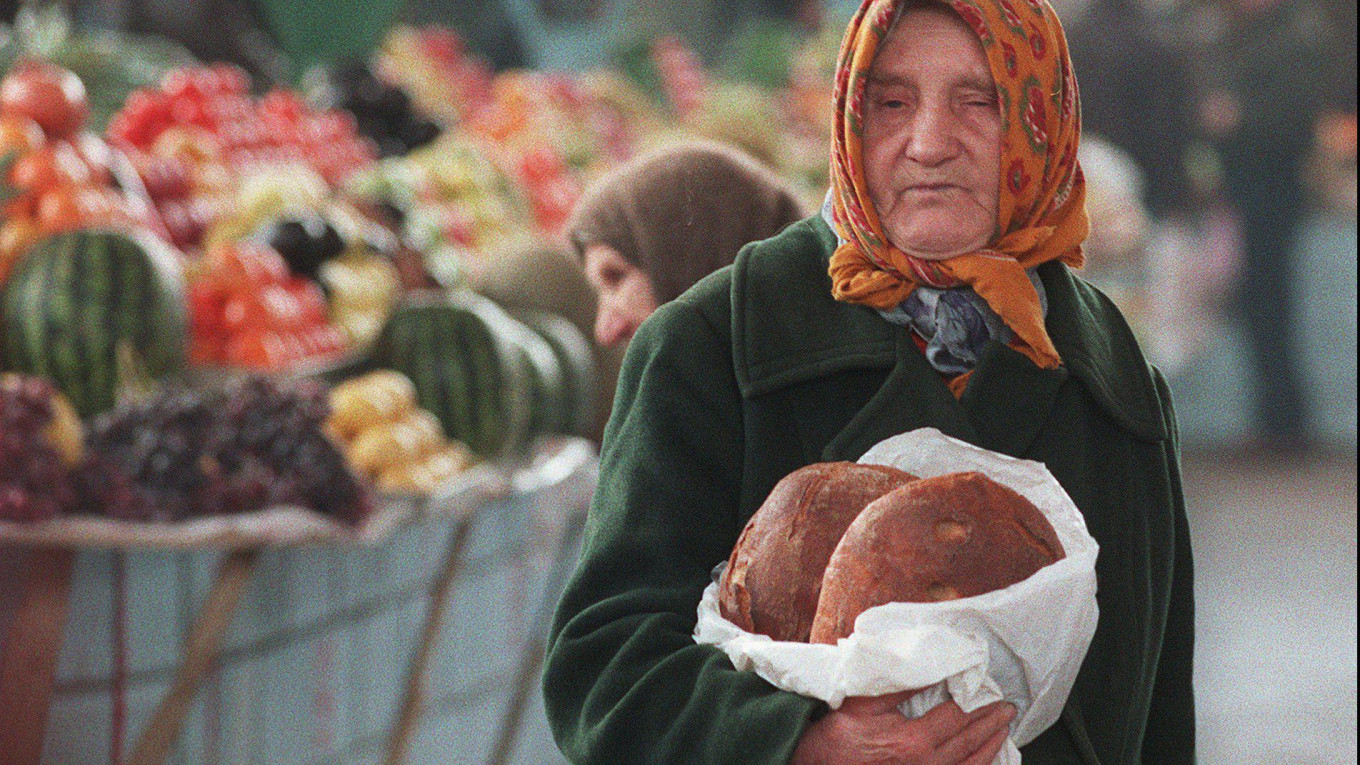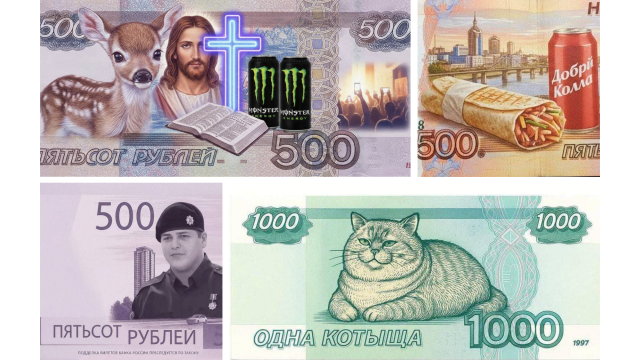In the town of Strunino, about 110 kilometers (70 miles) northeast of Moscow, there’s a small grocery store that hands out free bread to pensioners and poor families. For the past eight years, Mamud Shavershyan, the store’s owner, has paid for the bread himself, issuing ten monthly vouchers to each local household that says it qualifies. Every month, people with tickets can stop by the shop and pick up free bread: a full loaf of white bread and a half loaf of black bread, per ticket.
Shavershyan says he gives out about 3,000 loaves of bread in a month. It’s pure charity, totally free, and many of the people getting the bread are regularly mad as hell about the whole thing.
That’s because many of the people receiving this food don’t believe it’s from Shavershyan, and instead suspect him of skimming off the top of a government welfare program. According to a report by the newspaper Kommersant, customers often berate the store’s employees, when the bread runs out, accusing them of stealing from Putin, the mayor, or the governor.
“At first, the customers brought me to tears almost every day,” a clerk told Kommersant. “It was so painful for me. I started complaining to [the owner], saying that these people don’t appreciate his kindness.”
According to another store clerk, some customers try to cheat the system, collecting multiple vouchers for the same family. “It’s a small town and I know everyone,” she told Kommersant.
The clerk also said that people who come after the day’s bread is gone sometimes wait outside the store to shout demands. When she’s refused to give individuals multiple bread tickets, people have shouted racial slurs in her face, she said.
Originally from Armenia, Mamud Shavershyan moved to Russia 25 years ago. He told Kommersant that he doesn’t mind that locals in Strunino distrust his charity. “Nobody has ever helped these people, so they don’t believe in kindness and get mad,” he said, refusing to reveal how much he spends on the bread.
Shavershyan says no one from the government has ever contacted him to discuss the bread giveaway, let alone thank him for the program. “And there’s no need,” he says. “I just want the people around me to be a little better nourished.”
A Message from The Moscow Times:
Dear readers,
We are facing unprecedented challenges. Russia's Prosecutor General's Office has designated The Moscow Times as an "undesirable" organization, criminalizing our work and putting our staff at risk of prosecution. This follows our earlier unjust labeling as a "foreign agent."
These actions are direct attempts to silence independent journalism in Russia. The authorities claim our work "discredits the decisions of the Russian leadership." We see things differently: we strive to provide accurate, unbiased reporting on Russia.
We, the journalists of The Moscow Times, refuse to be silenced. But to continue our work, we need your help.
Your support, no matter how small, makes a world of difference. If you can, please support us monthly starting from just $2. It's quick to set up, and every contribution makes a significant impact.
By supporting The Moscow Times, you're defending open, independent journalism in the face of repression. Thank you for standing with us.
Remind me later.






